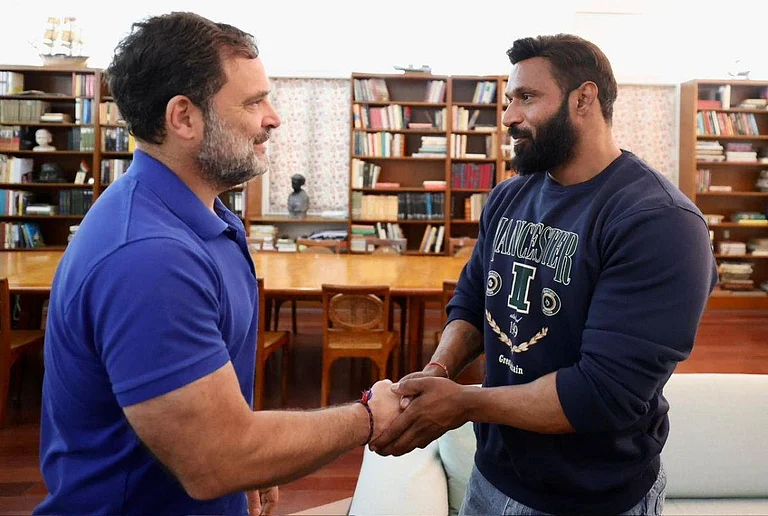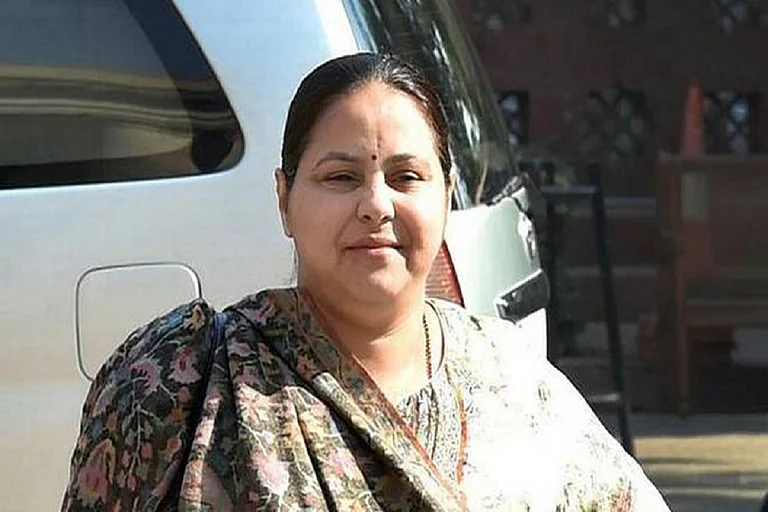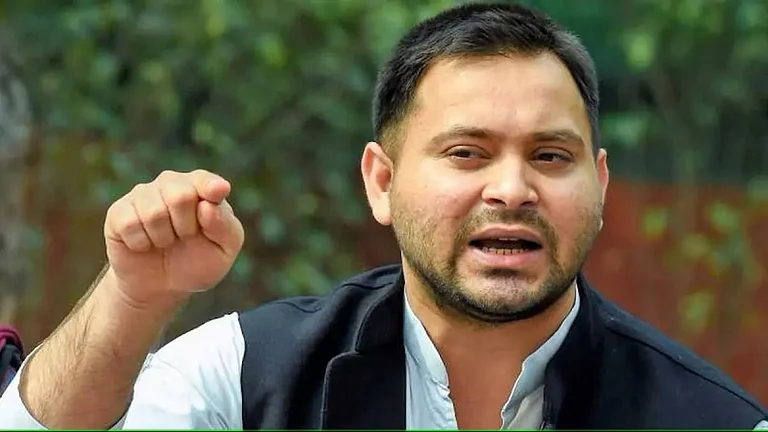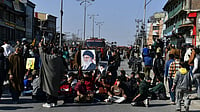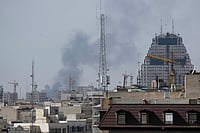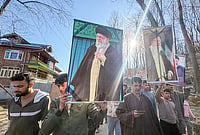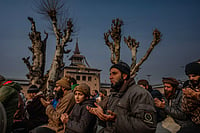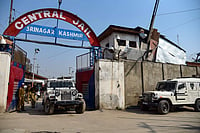
Political parties in Bihar have tried to woo the Muslims for votes by giving tickets to candidates from the community.
With more than two crore population, Muslims comprise nearly 17.7 per cent of the state’s population.
Asaduddin Owaisi-led All India Majlis-e-Ittehadul Muslimeen (AIMIM) has fielded candidates from the Muslim-dominated Seemanchal region, while the ruling Janata Dal United (JDU) has given tickets to four candidates, and the RJD has kept the Muslim-Yadav equation in mind to earlier announce candidates.
Mohammad Shahrukh, a resident of the Hasanpur area in Bihar, believes that the communal tensions in the poll-bound state may have less impact in the elections, which are being held in two phases on November 6 and 11.
Notwithstanding the move by political parties, including the ruling JDU and the Opposition RJD and Asaduddin Owaisi-led All India Majlis-e-Ittehadul Muslimeen (AIMIM) to give tickets to the candidates from the community, Shahrukh, who has been running a snacks stall in the Chadura area of Central Kashmir, says in his hometown, as elsewhere in Bihar, the communal clashes were less frequent.
During the elections, the BJP has talked about its achievements, including the construction of the Ram temple and the revocation of Article 370 that deprived the Muslim majority region of Jammu and Kashmir of its special status.
Last month at an election rally at Darbhanga, Union Home Minister Amit Shah highlighted the construction of the Ram temple and revocation of Kashmir’s special status as the party’s key achievements. Stating that it was under the leadership of Prime Minister Narendra Modi that the temple could be constructed, he said, “For 550 years, Ram Lalla lived in a tent.”
The BJP has also tried to consolidate its Hindu vote bank, with the party giving tickets to people from the Extremely Backward Castes (EBCs) and the upper caste categories of Hindus.
The Asaduddin Owaisi-led All India Majlis-e-Ittehadul Muslimeen (AIMIM), which won five seats in the 2020 elections, has fielded twenty-five candidates in these polls, focusing on the Muslim vote bank in the Seemanchal region, while also contesting in the newer areas of North and South Bihar. The AIMIM is, however, seen to be dividing the Muslim vote, with four of its MLAs earlier joining the RJD camp. The RJD has kept the Muslim-Yadav equation in mind to announce candidates for the polls earlier, with the party fielding 18 Muslim candidates, while the Congress had previously announced the names of ten candidates for the polls.
The ruling Janata Dal United (JDU) has given tickets to four Muslim candidates, while the Union minister Chirag Paswan-led Lok Janshakti Party (Ram Vilas) has fielded one candidate.
Shahrukh says that in his village of Hasanpur, as in most other parts of the state, there were no communal issues that confronted the people. “Muslims are free to take out religious processions and participate in the festivals,” says Shahrukh.
In 2018, however, several people were injured while a number of shops and business establishments were damaged in the communal clashes that erupted during a Hindu procession that was taken out in the Bhagalpur area of Bihar.
Muslims, who have traditionally voted for the RJD, Congress, and the Left parties, number over 2 crore and comprise nearly 17.7 per cent of the state’s population. Among the community, nearly 73 per cent of Muslims fall under the backward category of “Pasmanda” with their vote share considered to be a decisive factor in at least 30 out of the 243 Assembly constituencies. The Muslims form a sizeable community in the Seemanchal region and in the four districts of Kishanganj, Katihar, Araria, and Purnea, their population stands in the range of 40 to 60 per cent.
Before the elections, Chief Minister Nitish Kumar had repeatedly highlighted the work he had done for the welfare of Muslims. Referring to the probe being initiated into the Bhagalpur riots of 1989, he said that after the JDU came to power in November 2005, a “thorough investigation was conducted, action was taken against the guilty, and compensation was provided to the riot victims.”
Listing out the measures for the welfare of Muslim women, Nitish said that in order to support those who were abandoned by their husbands, the state government started financial assistance of Rs 10,000 per month in 2007, and the amount was increased to Rs 25,000 per month.
Vipin Kumar, a Bihari resident, however, says that more than the issues of communal politics, people would vote on the planks of development of Bihar. “ Political parties have done nothing for the welfare of the common Bihari. But when it comes to Chief Minister Nitish Kumar, his work has been better than that of others like Lal Prasad Yadav. People would vote for the BJP and Nitish Kumar.”
He says that Nitish Kumar has ensured that the public infrastructure facilities in Bihar have been upgraded, which has become possible due to the ample funds being made available to the state by the Prime Minister, Narendra Modi-led Central government.
“In our village, there used to be twenty-hour power cuts, which have now been reduced to eight hours. The roads have expanded too, which has been possible due to the coalition government of the BJP and the JDU,” he says.
Vishal Kumar, 24, another Bihari resident, says that there were fears that if the government of Tejashwi Yadav comes to power, crime will return to the state. “ There are fears that if Tejashwi comes to power, then the Jungle Raj would return to Bihar. During the tenure of former chief minister and RJD leader Lalu Prasad Yadav, the incidents of rape and kidnappings were more common.”
“People say that the sale of liquor would become possible if RJD wins the elections, and people would have to again witness theft and kidnappings. But I believe these elections are more about the creation of avenues of development and jobs in Bihar than other issues,” he says.







